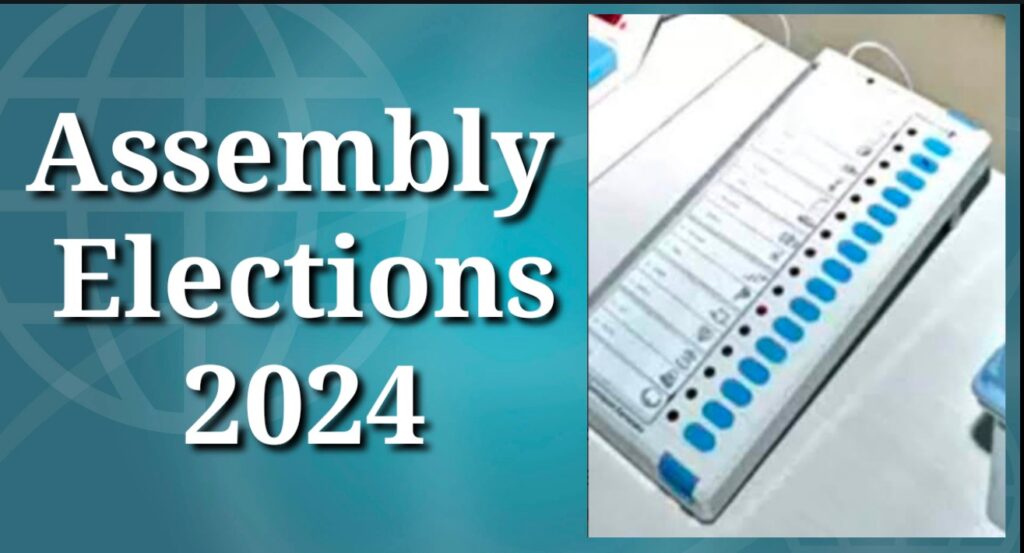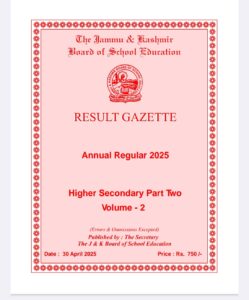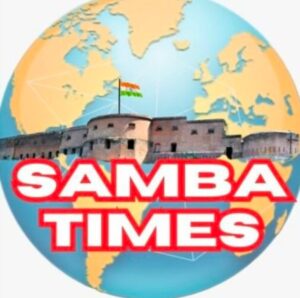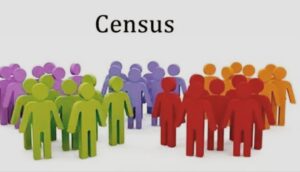BJP Poised for Strong Lead in Samba 70 Amidst Fragmented Opposition and Independent Surge in 2024 Assembly Elections
Samba Times Editorial

In the Samba 70 Assembly constituency of the 2024 Jammu and Kashmir Assembly elections, the race appears to be competitive, with 14 candidates from various political backgrounds and professions.
Now first of all let us look at the portfolios of these candidates
Following is the complete list of candidates in the fray from Samba along with brief profiles sourced from the candidate affidavits submitted with the Election Commission of India and analysed by the Association of Democratic Reforms (ADR):
Baldev Raj, Bahujan Samaj Party (BSP); Gender: Male; Age: 61 years; Profession: Ex-Service Man; Education: 12th Pass; Total assets: Rs 1.1 crore; No. of declared criminal cases: 0.
Bhanu Partap Singh, Independent (IND); Gender: Male; Age: 36 years; Profession: Businessman; Education: 10th Pass; Total assets: Rs 1.5 crore; No. of declared criminal cases: 1.
Krishan Dev Singh, Indian National Congress (INC); Gender: Male; Age: 58 years; Profession: Advocate; Education: Graduate Professional; Total assets: Rs 1.6 crore; No. of declared criminal cases: 0.
Lovely Mangol, Jammu and Kashmir Apni Party (JKAP); Gender: Male; Age: 42 years; Profession: Advocate and Notary; Education: Graduate Professional; Total assets: Rs 41.5 lakh; No. of declared criminal cases: 0.
Pinki Devi, National Awami United Party (NAUP); Gender: Female; Age: 40 years; Profession: Self Employed; Education: 10th Pass; Total assets: Rs 41000; No. of declared criminal cases: 0.
Raj Kumar, Aazad Samaj Party (Kanshi Ram) (ASPKR); Gender: Male; Age: 47 years; Profession: Businessman; Education: 8th Pass; Total assets: Rs 41.1 lakh; No. of declared criminal cases: 1.
Rajan Jamwal, Jammu & Kashmir National Panthers Party (Bhim) (JKNPPB); Gender: Male; Age: 58 years; Profession: Retired from Army (Ex-Serviceman); Education: 10th Pass; Total assets: Rs 35.9 lakh; No. of declared criminal cases: 0.
Rajinder Singh, Jammu & Kashmir Peoples Democratic Party (PDP); Gender: Male; Age: 49 years; Profession: Businessman; Education: 10th Pass; Total assets: Rs 18 crore; No. of declared criminal cases: 1.
Ravinder Singh, Independent (IND); Gender: Male; Age: 38 years; Profession: Ex-Sarpanch; Education: 12th Pass; Total assets: Rs 82.5 lakh; No. of declared criminal cases: 4.
Reena Choudhary, Independent (IND); Gender: Female; Age: 38 years; Profession: Ex. Sarpanch, Busienss Woman; Education: Graduate; Total assets: Rs 14.5 lakh; No. of declared criminal cases: 1.
Sandeep Singh Sambyal, Independent (IND); Gender: Male; Age: 41 years; Profession: Self Employed (Teacher); Education: Graduate; Total assets: Rs 51.1 lakh; No. of declared criminal cases: 0.
Surjeet Singh Slathia, Bharatiya Janata Party (BJP); Gender: Male; Age: 70 years; Profession: Pension from J&K Govt. and Salary Private Sh. Sahil Slathia; Education: 10th Pass; Total assets: Rs 16.8 crore; No. of declared criminal cases: 0.
Vinod Kumar (Mishra) Democratic Progressive Azad Party (JKDPAZ); Gender: Male; Age: 59 years; Profession: Social Activist; Education: Graduate; Total assets: Rs 2.2 crore; No. of declared criminal cases: 0.
Vinod Kumar, Independent (IND); Gender: Male; Age: 44 years; Profession: Ex-Man; Education: 8th Pass; Total assets: Rs 35 lakh; No. of declared criminal cases: 0.
Given the diversity of candidates, their profiles, and party affiliations, a few potential scenarios could unfold:
1. BJP’s Stronghold and Influence:
Surjeet Singh Slathia, the BJP candidate, is a significant contender due to his experience and previous role in the J&K government. As a well-established politician with substantial assets (Rs 16.8 crore), he could benefit from the BJP’s development narrative and its strong presence in Jammu, including in Samba. The BJP’s efforts to push infrastructure projects and connect with rural voters might give Slathia a decisive edge. Moreover as far as the previous vote share of BJP in Parliamentary elections, The Bharatiya Janata Party (BJP) has maintained a significant hold in areas like Sumb, Samba and Ghagwal. These areas are expected to continue their support for BJP due to the party’s strong development agenda and previous electoral performance. Surjeet Singh Slathia, the BJP candidate, is well-positioned to benefit from this, given his extensive political experience and the party’s existing voter base in these regions. Slathia, being a well-recognized figure, could also leverage the BJP’s organizational strength and its established network across these key voting blocs. Moreover he has also a leverage of the vote on account of his background from Gurha Slathia which is now connected with Samba constituency
2. DPAP’s Influence:
Vinod Kumar Mishra, the DPAP candidate, also poses a strong challenge. Formerly associated with Congress, Mishra may attract a portion of the Congress vote share, particularly from those who are unhappy with the nomination of wrong Congress candidate. This could fragment the Congress base, pushing some voters towards DPAP. Moreover Mishra also garner more support from the other sections of the society as he is a seasoned politician.
3. Challenge from Independent Candidates:
Several independent candidates, such as Bhanu Partap Singh and Ravinder Singh Lovelu, could fragment the vote share. Ravinder Singh, has the background of being an Ex-Sarpanch, which might give him an advantage in rural areas. His local influence, combined with the wave for vocal for local might have him leverage. Moreover, the fragmented vote from Congress dissdents might came in his lap. Other independents like Reena Choudhary, who also has a Sarpanch background, could sway a portion of the electorate that values local governance experience.
4. Opposition Parties – INC
Krishan Dev Singh from the Indian National Congress (INC), with his background as an advocate and his education level, may attract voters looking for a more progressive candidate. However, Congress’s weakened position in Samba may affect his chances. As the local Distt President of Samba is against his candidature thus hampering his progress. Although in the damage control measure, Congress has taken steps to strengthen its position in Samba, particularly with the appointment of Vijay Tagotra, an ex-BDC Chairperson, as the Working President of Congress in Samba district. This move is expected to bolster Congress’s vote share in Ghagwal, an area previously leaning towards BJP. However, internal challenges persist, as District Congress President Sanjeev Sharma is reportedly discontent with the party’s decision to nominate Krishan Dev Singh (KD Singh) as the candidate, which has caused internal friction. The party’s internal rifts may impact its overall performance unless resolved quickly.
5. PDP- JKAP:
Rajinder Singh of the PDP may also attract voters, particularly those unhappy with the current political landscape in the region. His substantial wealth (Rs 18 crore) indicates strong resources for campaigning, although his criminal record could be a deterrent. Lovely Mangol from JKAP (Apni Party) is a young and professional candidate (Advocate and Notary) who might appeal to educated, urban voters, but the JKAP may struggle to challenge larger parties like BJP and Congress in this constituency.
6. BSP, NPP
Baldev Raj of the Bahujan Samaj Party (BSP), an ex-serviceman, could attract votes from the Dalit community and ex-servicemen, which might be a factor in this constituency. His relatively modest assets suggest he might not have the financial resources for a large-scale campaign. Rajan Jamwal of the Jammu & Kashmir National Panthers Party (JKNPPB) could appeal to voters seeking regional representation, but the Panthers Party has seen a decline in influence.
7. Other Factors –Caste, Community, and Development:
Samba, being a mixed demographic constituency, may see caste dynamics playing a role. Candidates like Surjeet Singh Slathia and Ravinder Singh Lovelu might benefit from community support. Local development issues, including infrastructure, education, and employment, will likely influence voter decisions. The BJP has positioned itself as a pro-development party, which could work in its favor.
So Surjeet Singh Slathia of BJP is currently positioned as the frontrunner, largely due to the BJP’s strength in the region and his established political experience. Independent like Ravinder Singh and DPAP Vinod Mishra could capture a significant chunk of the vote, especially in rural areas, potentially making the race more fragmented. Krishan Dev Singh (INC) and Rajinder Singh (PDP) remain strong opposition candidates but may struggle due to the dominance of BJP in Jammu. In conclusion, BJP is likely to maintain an upper hand, but the presence of several independent candidates and the performance of opposition parties could make this a closely watched contest.
Rahul Sambyal ✍️
Executive Editor Samba Times
*Editorial is based on the previous Parliamentary Elections data, on the profile of the candidates & on public opinion



